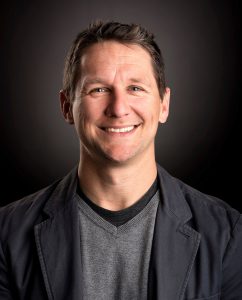Donaghey College of STEM Selects Ruhl-Whittle, Siraj, Wallace as 2022 Faculty Excellence Winners

The UA Little Rock Donaghey College of Science, Technology, Engineering, and Mathematics (DCSTEM) has chosen its top professors of the year.
DCSTEM is honoring Dr. Laura Ruhl-Whittle, associate professor in the Department of Earth Sciences, for teaching, Dr. Noureen Siraj, assistant professor of chemistry, for research and creative endeavors, and Thomas Wallace, a senior instructor in the Department of Information Science, for public service.
They will also be competing for the university-wide Faculty Excellence Awards that will be announced April 7.
More information about the winners:
Faculty Excellence Award for Teaching
A popular teacher in the Department of Earth Sciences, Ruhl-Whittle is known as a creative and dedicated teacher who puts her career experience into action in the classroom with in-class activities, service learning, and scaffolded projects. She co-teaches two high-impact courses, Geology and Ecology of the Bahamas and Advanced Bahamian Research, that gives students the chance to learn about and conduct research in the Bahamas.
Ruhl-Whittle has actively engaged high school, undergraduate, and graduate students in her research with projects ranging from hydrogeology to medical geology. In her hydrogeology and environmental geology courses, she works with local community partners to facilitate opportunities for students to become involved in solving Arkansas groundwater and environmental issues.
Ruhl-Whittle is also an innovative thinker who is not afraid to take risks in her teaching. When the pandemic prevented the annual student research trip to the Bahamas, she developed a new assignment where students used Google Earth to create a virtual field trip of the island to share with their peers.
“This exercise was interactive and engaging for the students and bridged the gap between visiting the island and learning about it from afar,” said Dr. René A. Shroat-Lewis, associate professor in the Department of Earth Sciences.
Ruhl-Whittle was one of the first volunteers to participate in the Mobile Institute on Scientific Teaching in 2019. The workshops are designed to immerse faculty in an experiential learning environment where they participate as students in a classroom for a week. She then went on to co-lead the workshop in 2021. In addition, she serves as a teaching fellow with the UA Little Rock Academy for Teaching and Learning Excellence and has taught webinars on teaching during the pandemic.
One of her former students, Zach Smith, described Ruhl-Whittle as one of the most impactful scientists in his academic and scientific career.
‘I would not be the scientist I am today had it not been for Dr. Ruhl’s teaching and mentoring,” Smith said. “Dr. Ruhl is an educator and scientist to admire because she is brilliant, working not just to further science, but also further scientific literacy in her students. She provides experiences that make her students competitive, no matter what path they choose to take.”
Faculty Excellence Award for Research and Creative Endeavors

Siraj has developed a reputation as a prolific researcher in the development of nanomaterials for biomedical applications and solar cell applications. In the past five years, Siraj has received more than $570,000 in funding from federal, state, and local agencies, including a nearly $190,000 grant from the National Science Foundation for the “Synthesis, Characterization, and Application of FRET based Ionic Materials.”
Over the past five years, Siraj has published 34 peer-reviewed papers, given 59 conference presentations, mentored six Ph.D. students and 18 undergraduate students, and served on eight Ph.D. committees. Her research has been cited more than 700 times since 2016.
In order to promote STEM education, she begins mentoring students in middle school, at a time when some students, especially girls, begin to lose interest in the sciences. She has hosted 19 middle and high school students for their science fair projects. In 2018, Meghana Bollimpalli, one of Siraj’s mentees from Central High School, earned more than $58,000 in scholarships for her science fair project at the Intel International Science and Engineering Fair. Meanwhile, Stuti Chaterjee, who worked in Siraj’s lab, won the 2021 Whitbeck Memorial Award, the highest award granted to a graduating student from UA Little Rock.
“Dr. Siraj is an outstanding scientist and one of the best researchers on our campus,” said Dr. Brian Berry, vice provost for research and dean of the Graduate School. “Dr. Siraj has leveraged her expertise in frozen ionic liquids to develop a very active research group. The work of this group is nationally and internationally known. Out of all the faculty members that I have observed since joining UA Little Rock, she is one of the most promising.”
Faculty Excellence Award for Public Service
Wallace has actively integrated his teaching to encourage his students to become involved with the community. Since 2017, he has supervised students who intern with local organizations like First Orion, Team SI, and Arkansas Times. In the annual capstone project for information technology students, he oversees student teams who develop websites and apps for state agencies, nonprofits, and local companies. Upon deployment of the projects, Wallace works with these organizations to create a long-term maintenance strategy.

In addition, Wallace leads a week-long annual residential coding camp at UA Little Rock called “GIRL Code.” This camp attracts 16 students every summer and encourages girls in 7th-9th grade to pursue careers in STEM. Now entering its sixth year, the program has attracted the support of large technology companies like Windstream and CJRW.
“As I look to the future, I hope to continue to build these bridges between the university and the community and provide more opportunities for students to build their skill set while learning to support their community,” Wallace said. “I appreciate and value the chance to shape their careers and highlight the value of using one’s abilities to build a strong community around them.”
He has also served as a front-end web developer for the Center for Arkansas History and Culture since 2019, developing interface elements for a mapping renewal project funded by a National Endowment of the Humanities grant.
